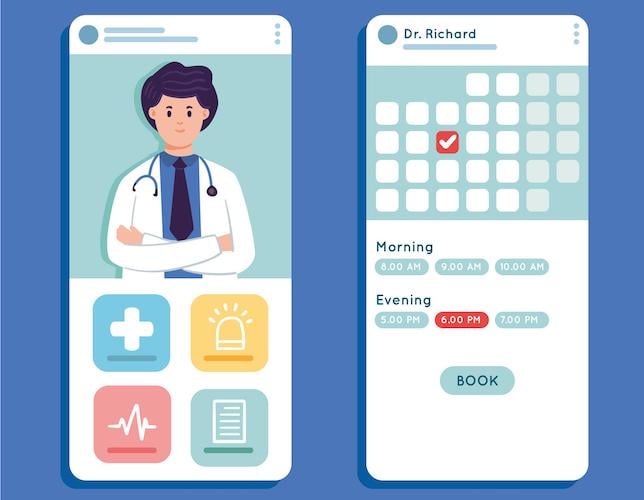
5 Medical Appointments to Schedule
To be healthy, you should go for regular medical tests and check-ups. Setting up these meetings helps you spot any health problems early and follow the right plan for staying healthy.
You should think about booking these five important medical appointments:
1. Annual Examination
Regular Medical Appointments
Having an annual examination means your doctor reviews all aspects of your health. This allows your healthcare provider to check your past health records, check your health now and talk about any worries you have.
What You Should Know
During your physical exam, your doctor will often:
- Measure your blood pressure, heart rate and temperature to see where they stand.
- Check your heart, lungs, abdomen and other body systems during a physical examination.
- Look at your medical history and correct any errors you find.
- Give vaccinations when they are required.
Benefits
Regular check-ups allow health problems to be found early. It becomes simpler to discuss any issues with your doctor because you have better understanding.
2. Dental Check-Up
Looking After Your Mouth
Taking care of your mouth is important for your overall health. Having your teeth checked regularly can keep cavities, gum disease and other dental issues away.
What You Should Know
- Your dentist will do several things during your dental check-up.
- Remove plaque and tartar by cleaning your teeth.
- Check your teeth and gums for any signs of problems.
- When needed, take X-rays to look for problems that are not visible to the naked eye.
- Explain how to keep the mouth clean and suggest ways to do it better.
Benefits
Regular dental appointments can help catch small issues early, so you do not need major treatments. They add to the healthiness of your teeth and your breath.

3. Eye Exam
Taking Care of Your Eyes
Good vision and eye health depend on regular eye exams. They help find problems in your vision and eye health at an early stage, so you can get treatment promptly.
Overview of What’s Ahead
- An optometrist will go through a set of tests during an eye exam.
- You should use an eye chart to check your ability to see clearly.
- Check how quickly you can move your eyes from side to side and up and down.
- Make sure to check your eyes, including both the retina and the optic nerve.
- Contact your eye doctor to get a new prescription for glasses or contact lenses, if it’s time.
Benefits
Having a routine eye exam can help discover glaucoma, cataracts and macular degeneration early. They make sure your eyes are being corrected with the most recent technology.
4. Mammogram and Pap Smear
Checking Women’s Health
Mammograms and Pap smears are important for women to find breast and cervical cancer at an early stage.
Mammograms
An X-ray of the breast called a mammogram can find tumors or other changes. It’s recommended for women to have a mammogram every one to two years after they turn 40 or if their doctor suggests it be done sooner.
Pap Smear
During a Pap smear, cells are gathered from the cervix to find signs of cancer or precancerous changes. Women should begin having Pap smears every three years when they turn 21, unless their doctor advises differently.
Benefits
Catching breast and cervical cancer early raises the possibility of successful treatment. Checking for health problems often can prevent serious issues and make you feel less worried.

5. Tests for Cholesterol and Blood Pressure
Watching Your Heart and Blood Vessels
Having high blood pressure and cholesterol greatly increases your risk of heart disease. Regular check-ups can control these illnesses and make heart attack or stroke less likely.
Getting Your Cholesterol Screened
A cholesterol test measures the amounts of cholesterol present in your blood. People over 20 should get their cholesterol checked every four to six years, but more often if they have heart disease risk factors.
Blood Pressure Test
Blood pressure is the amount of force your blood uses to push against your artery walls. High blood pressure usually has no warning signs, but it can cause serious illnesses. Blood pressure should be checked at least once every two years for adults. However, anyone with high readings should have it checked more often.
Benefits
Frequent cholesterol and blood pressure checks make it possible to catch problems early and adjust your lifestyle to protect your heart. Dealing with these factors can help people enjoy better health and live longer.
Keeping up with medical appointments regularly helps you take care of your health. Having regular physical exams, dental visits, eye check-ups, women’s health tests and cardiovascular checks can help you discover problems early and take steps to stop them. Remember, by going to these appointments, you are looking after your health, feeling more secure and helping to live a longer life. Give health care importance and don’t neglect your medical needs.

